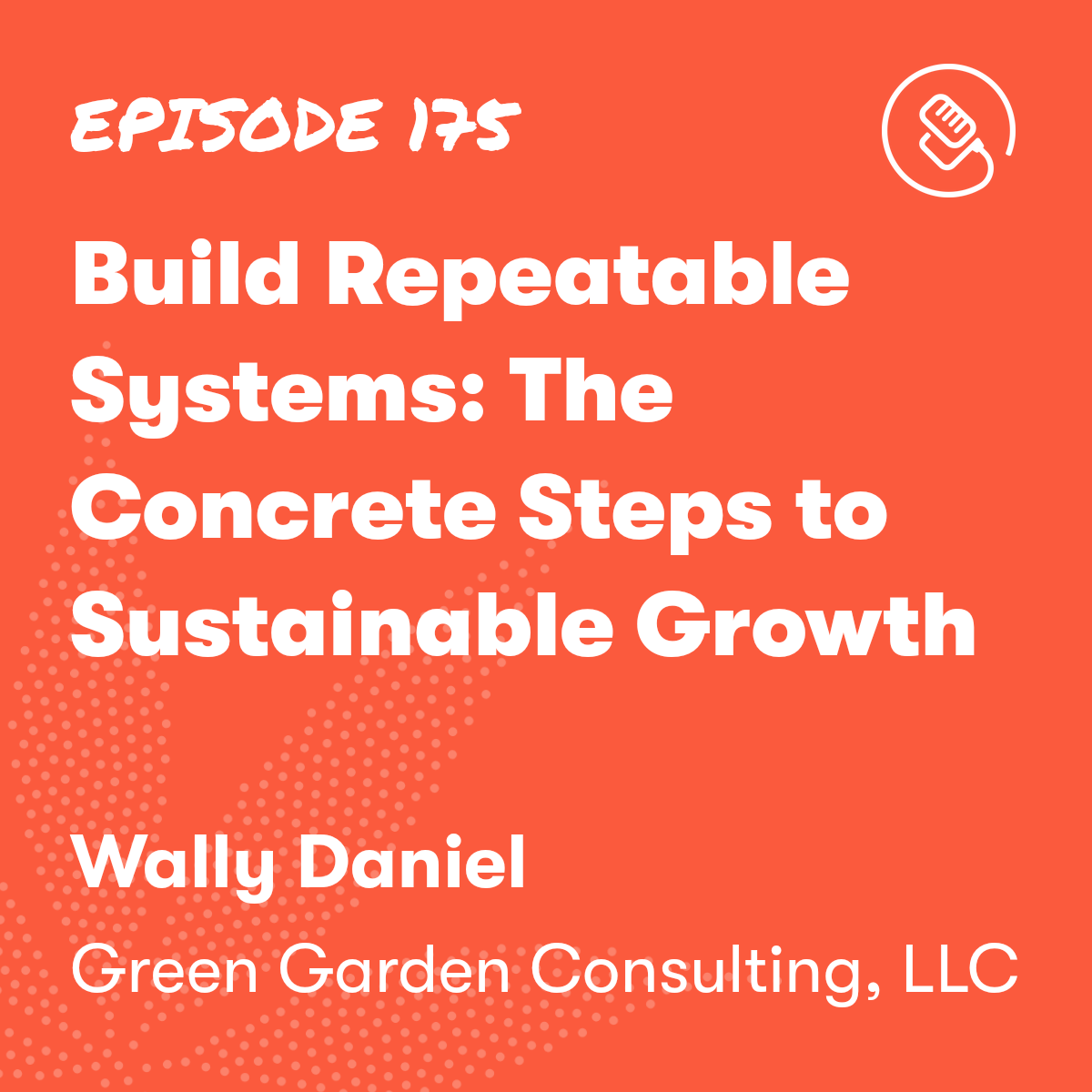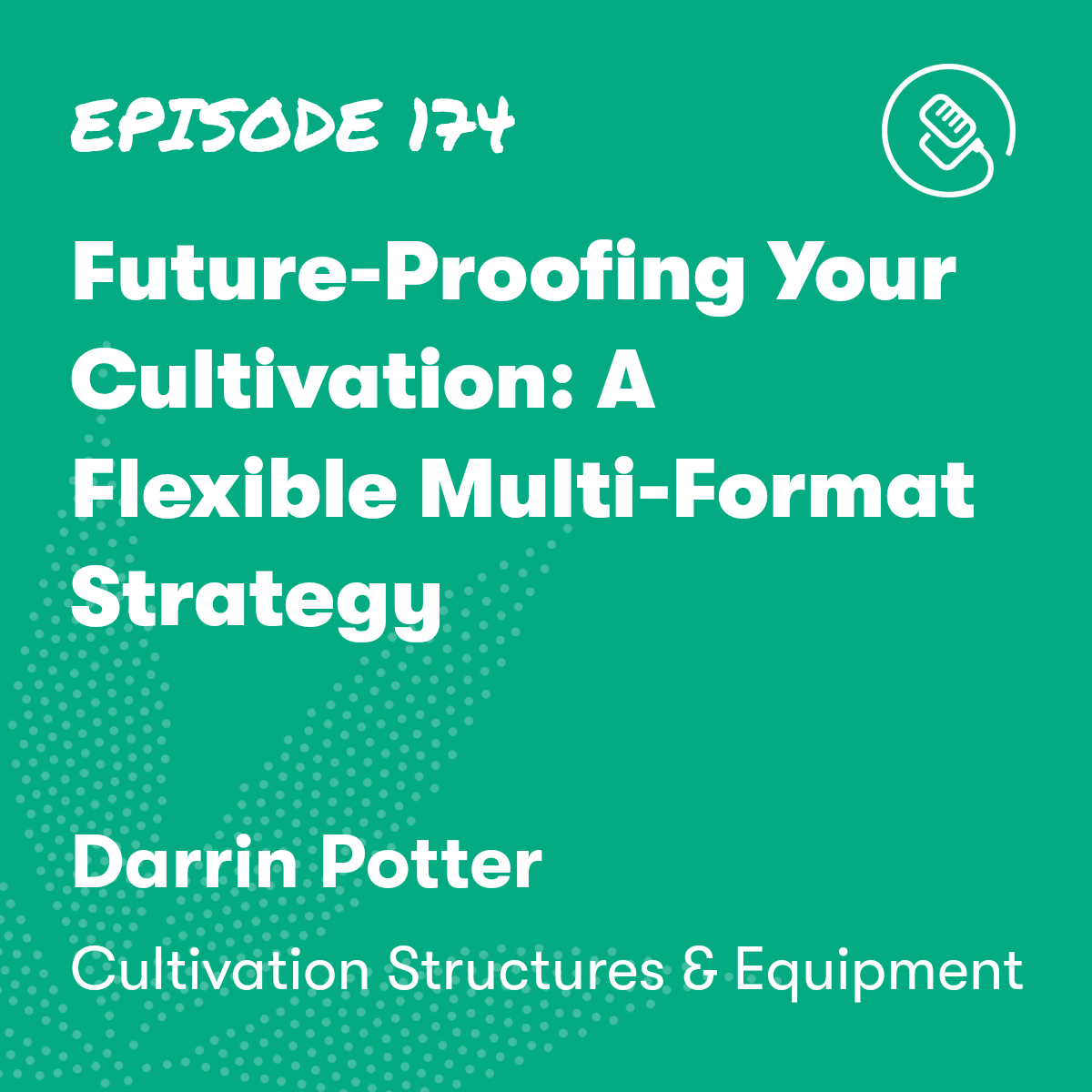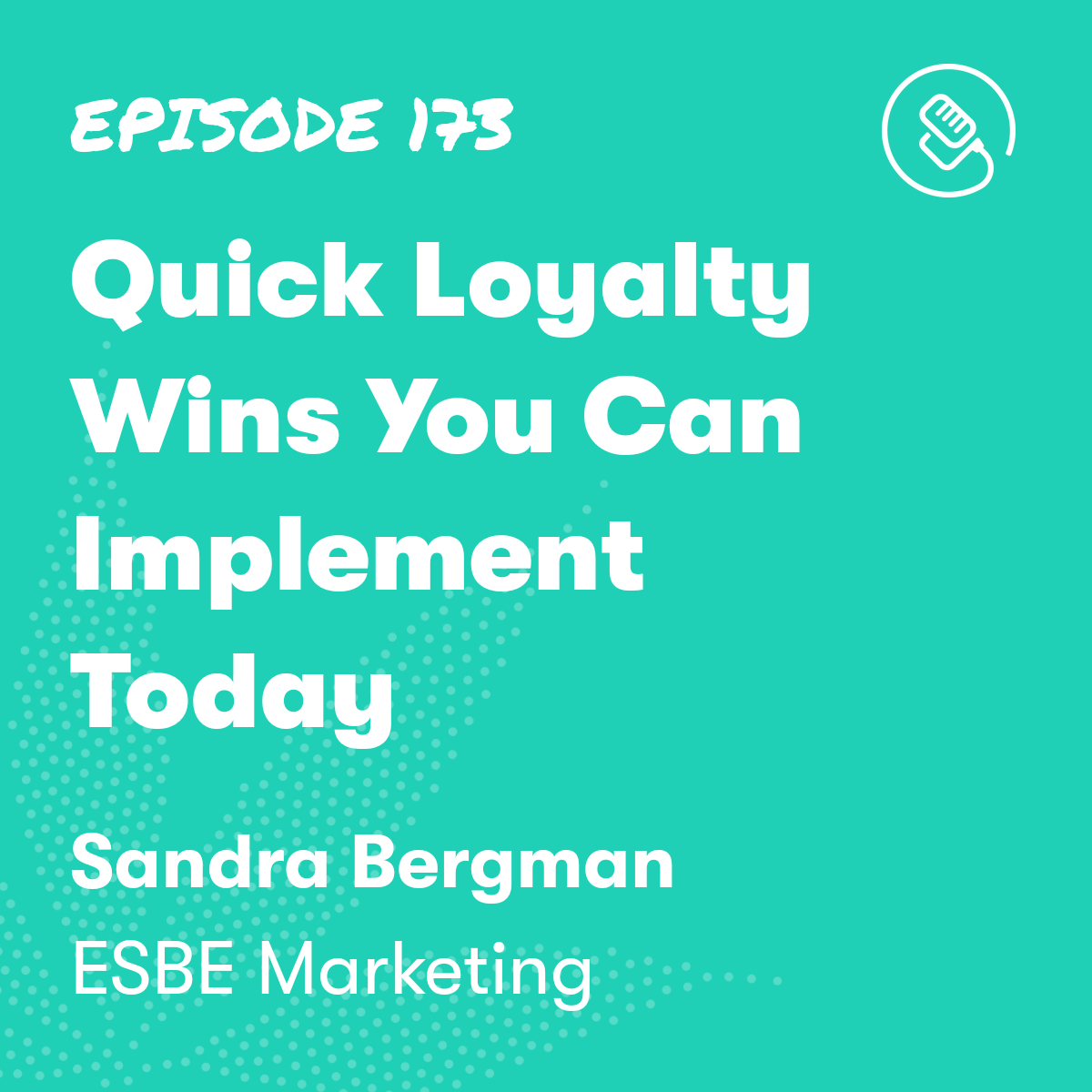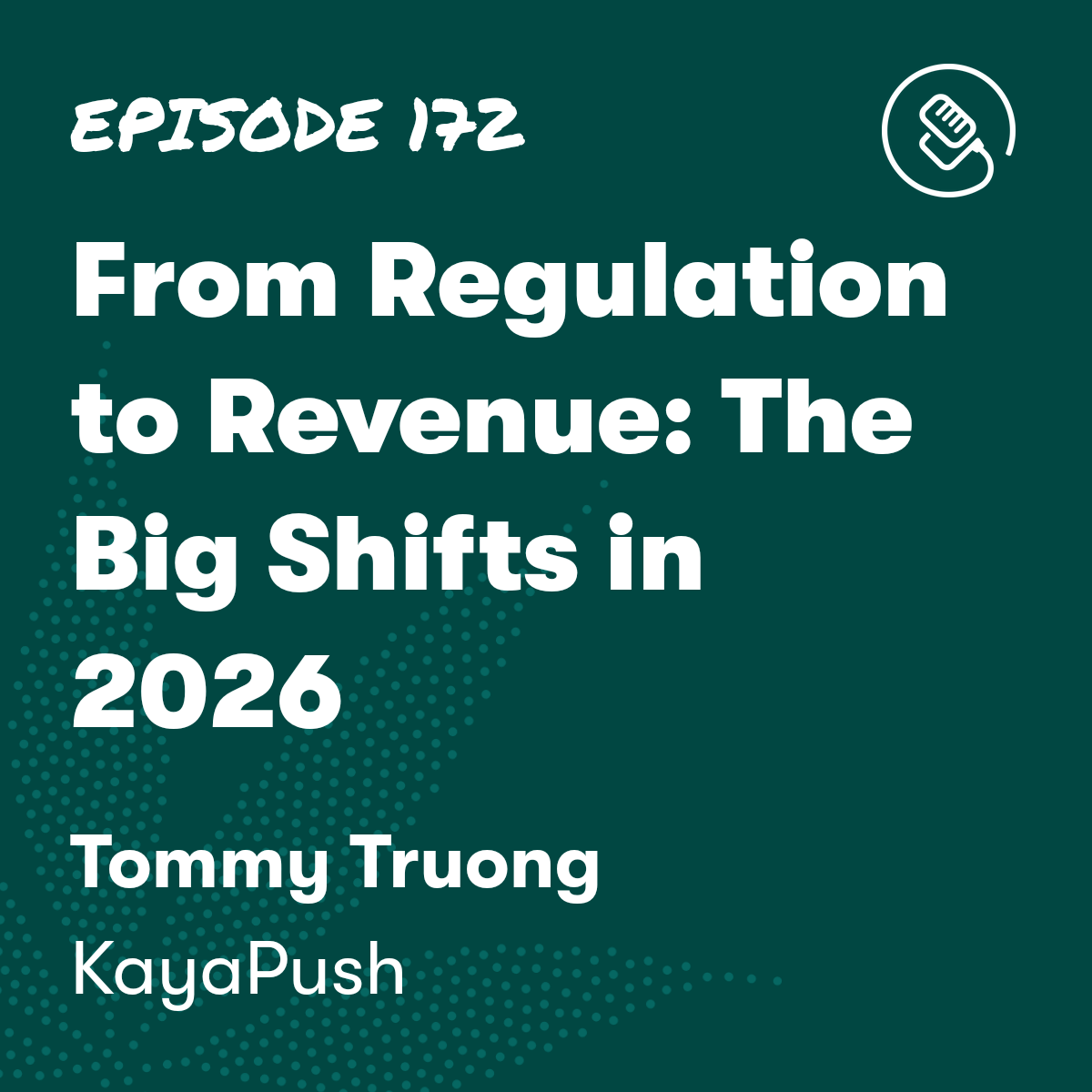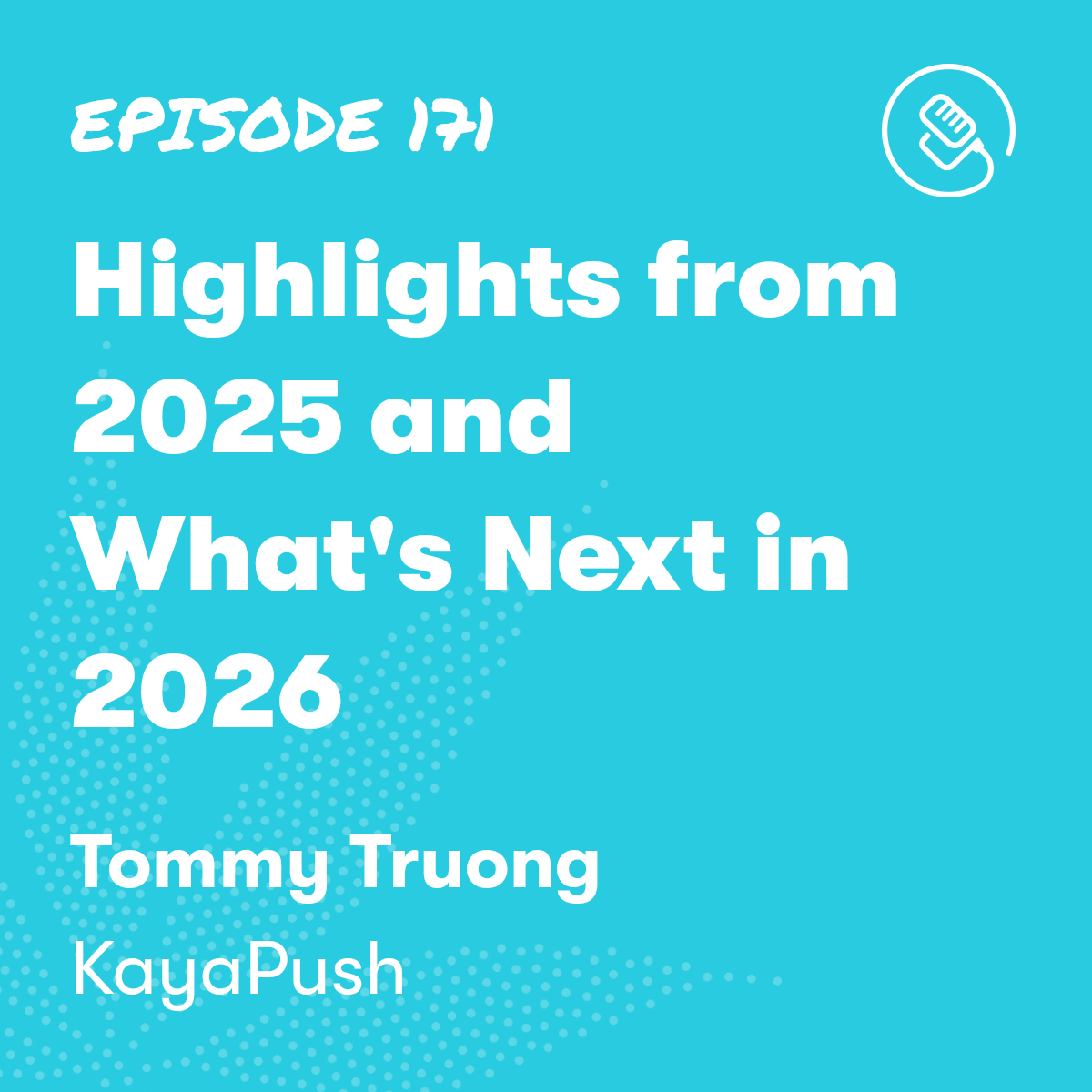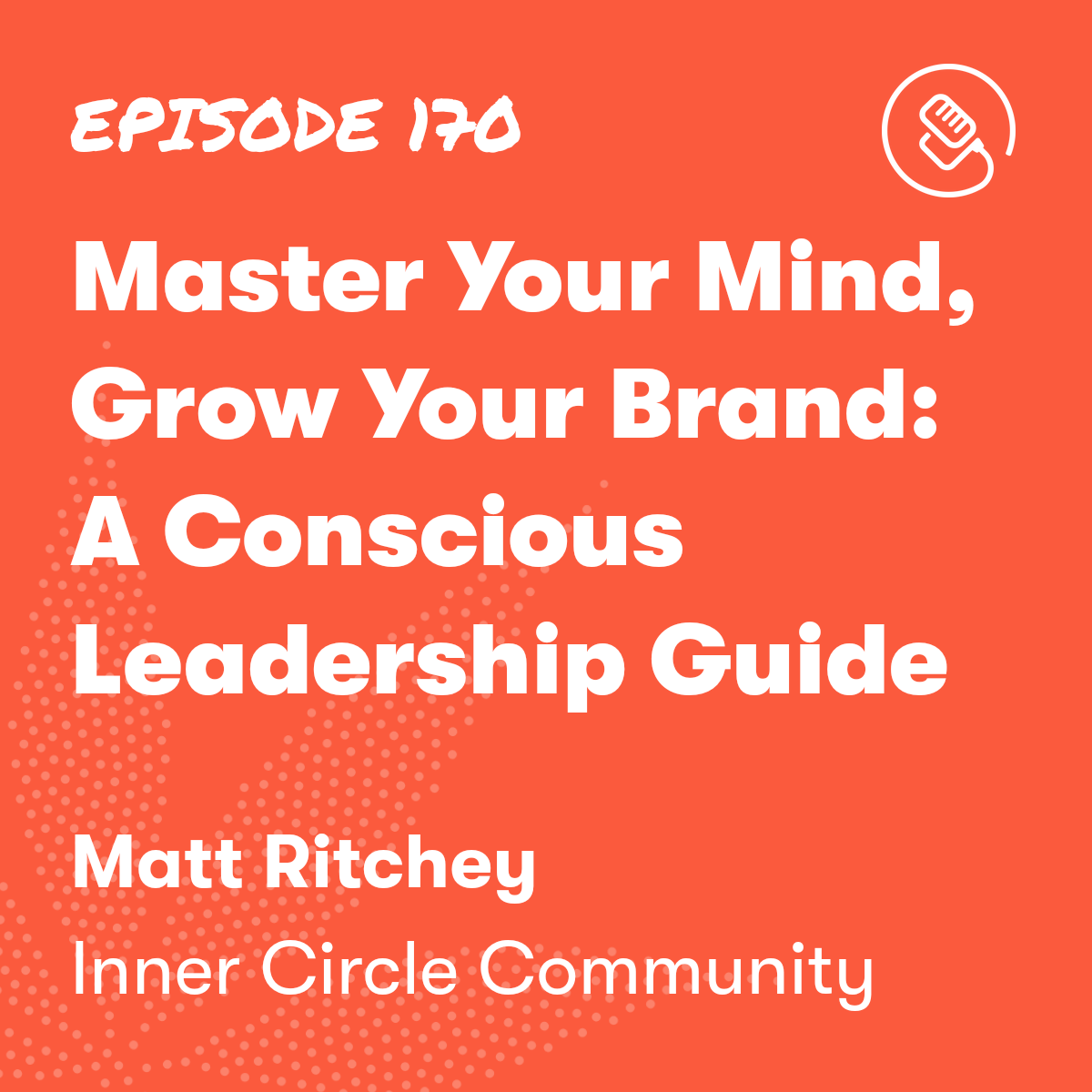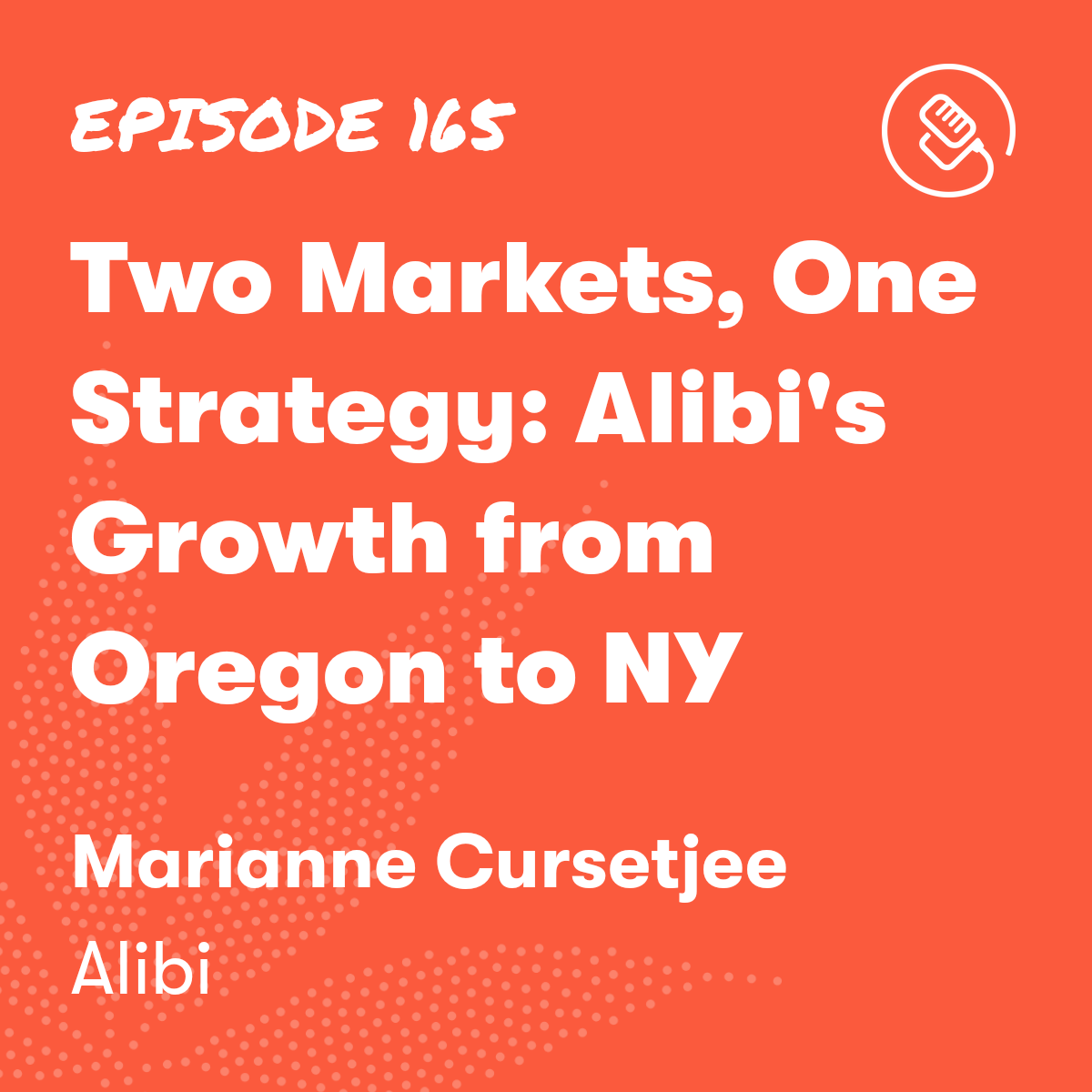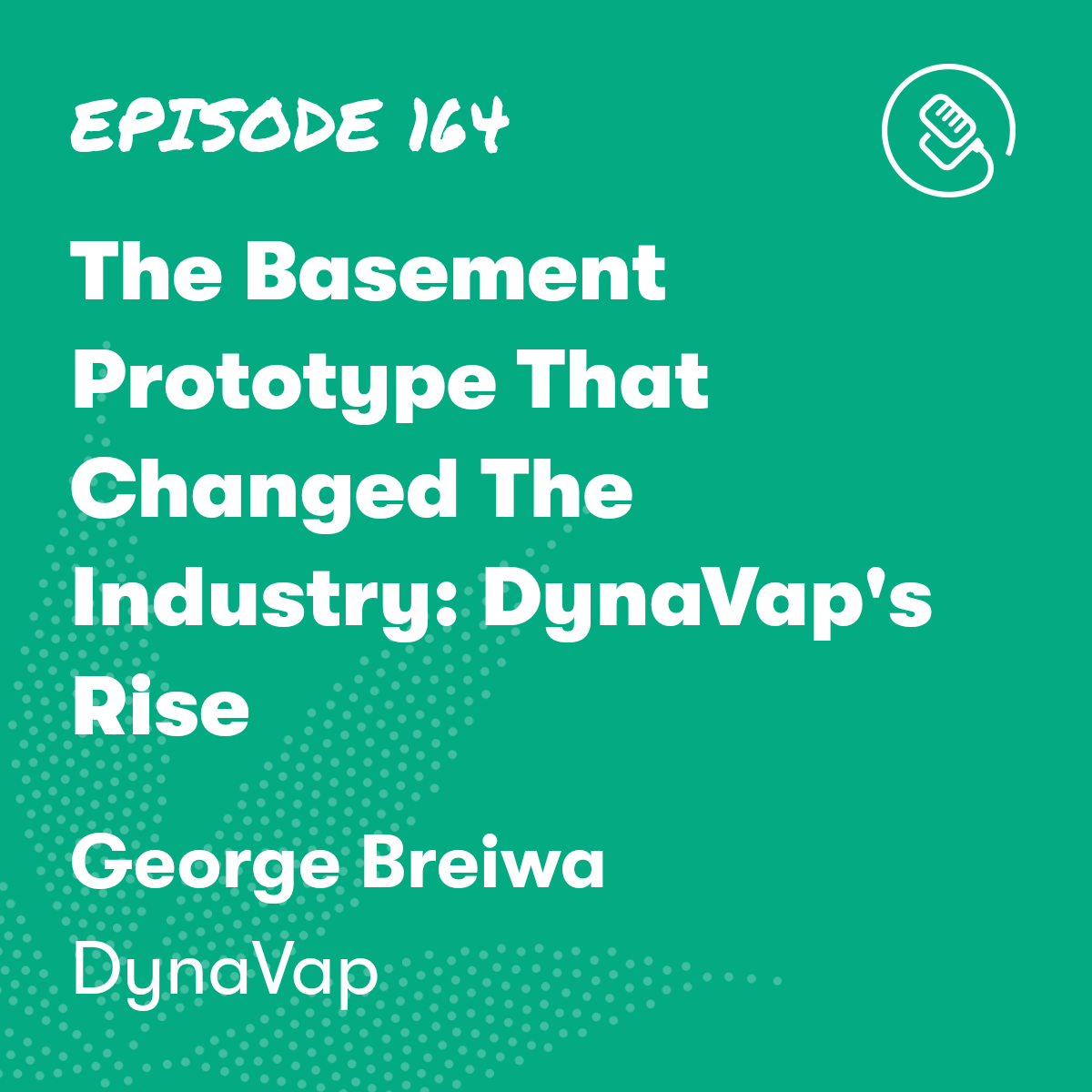

Choosing the Perfect GM for your Cannabis Business
Episode Description

Episode Transcript
Tommy: Starting a business is tough. There's so many things to do. Where do you allocate your time? How do you know. You're hiring the right people. And setting the right goals to move your business forward. Ryan Monroe joins us today to talk about his experiences helping launch businesses in the restaurant cannabis and brewery industry. This was such a great conversation. I'll hope you guys enjoy.
[00:00:24] Intro: Welcome to the KayaCast, the podcast for cannabis businesses looking to launch, grow, and scale their operations. Each week, we bring you interviews with industry experts and successful retailers, plus practical tips and strategies to help you succeed in the fast growing cannabis industry.
[00:00:49] Ryan: Ryan, thank you
[00:00:50] Tommy: so much for joining us today. Thank you. I'm happy to be here.
I get this question asked all the time, and I'm, I'm obsessed with time. I'm obsessed with how effective am I at leveraging my time to impact the business.
At the startup phase, based on your experience and based on what you've seen, where should entrepreneurs really, really think about allocating their time that impacts the business the most?
[00:01:12] Ryan: That's a great question. Um, I'm going to give you a few thoughts here. So I think the first is with their people.
And this takes a few different lenses. As you know, starting a business, the biggest part is the recruitment piece. And if we're being truly honest as business leaders, business owners, sometimes that focus should be on the people that you don't already know. It's great to have a network and say, Hey, listen, Tommy, I'm starting this new gig.
Why don't you hop on board and be my number two and do this? But it's taught me the right person at this right time for what we're trying to do. And it takes a lot of honesty and inflection to really understand if that's the case. Um, so it's the recruitment, the hiring, the onboarding that should take up.
And I read this in some book somewhere, any leader is spending at least 33 percent of their time recruiting or retaining the talent at least 33 percent of the time. And I think that holds true. I think the second piece here, and this is, um, I saw this a lot in the restaurant world. I've seen it a lot in the brewery world, and I think there are a lot of parallels within cannabis.
The owner should have a foundational view of their balance sheet. And as, As easy as that may sound, in practice, it's very difficult, right? I have a finance background. I struggle with it, right? And finding the right partners, the right advocates, the right kind of internal board of directors that one may have and advisors, you need to make sure you have someone who is facile enough in just the basic structures of business finance to help you get smart, right?
Because at the end of the day It's a game of numbers, right? How are you generating revenue and how are you doing it efficiently? What do your margins look like? Or going back to your point earlier, what do you want them to look like? We know what industry margins look like within cannabis, but where do you want them to actually be within your business?
And if you don't have a view on it, you probably should. Right? And I think not enough time is spent truly being a steward. And this isn't cannabis specific. This is kind of industry agnostic. I don't think enough business owners are true stewards of their financial success. I think they, unless they come from this background, they generally say, Hey, I'm going to hire a CFO who's just a numbers guy or gal and let them deal with it.
Like, no, that's your responsibility as well. You can hire someone to do the tactical, the day to day and help you with the strategic, but you need to be as equipped to be able to answer those questions and to have a view as them. Right? And I think that's important. So I think those are the two big ones.
And then the third one, and this goes back to what I was saying earlier, you have to say, you have to have a vision. You have to have. Something for your customers, your partners, and your employees to anchor on. If not, everyone's just kind of flying blind. Right. And it's easy to say, Hey, listen, I'm just going to take a post it note here and jot down my vision.
And that's it. It's like, no, that's something you have to review consistently and speak to the right folks to make sure, like, is this truly what I want my business to be today, tomorrow, a year, five years from now? So I think those are the three pillows I like to anchor on when I talk to, um, new business owners, right?
The people, the financial, and the vision. And I equal weight them, right? I pretty much give them a 33 percent weight because they are all important.
[00:05:03] Tommy: When somebody is first hiring out their GM, very important role. Very important role. So important. Who would you look for in a GM? What characteristics of that person would you look for?
[00:05:16] Ryan: So I'll give you my personal view and then I'll speak more holistically. The cool thing about the GM role is it is nebulous enough where you can form fit, but it's structured enough where at the end of the day, if anyone's talking to a GM, they have an idea of what that person brings to the table. A level of experience, a significant mastery over product, how they manage projects and orientation around operational efficiency, all that fun stuff.
So for me personally, right, when I look for a GM, I want someone who has kind of three main things, and this is based on who I am as a business leader and me being radically transparent with what I am not good at, right? And I think that anchors into anything that we do as business leaders or business owners is being truly honest with yourself.
To realize I'm not great at everything and I need to find people who excel at the things I do not excel at. And so for me, it's does the GM have a firm control over managing people and projects on a day to day basis? Right? I'm going to trust this person with really owning the day to day experience from my shop, from my brewery, from my dispensary, whatever it is, I need to know that they understand how people operate, how the customer interfaces with us, and how the technology and the entire ecosystem work from a day to day basis.
So that's rule number one for me. The second one is, and I mentioned it before, I have a finance background, but I'm not an expert in finance. I'm a salesperson by trade, if I'm being honest. So having someone who understands PNLs and understands budgets to make sure that like, for the most part, we can reconcile at the end of the day, week, month, quarter.
is also very important to me, right? Um, and then the third, and I'm going to try not to use coarse language here, but someone who's not a bad person, and you can insert any term you want into bad person, um, but I have a post it note on my desk that says, don't be a Insert colorful term here. To me, that's, that's it, right?
That is the central focal point that I look for in anyone and I really pressure test when I interview people for that because everything else is a learned skill. Everything else is like, Hey, I have some experience here. I know I can do this. Cool. Are you a really good person though? Is, are you the type of person that people gravitate towards and want to work for?
And when I do my kind of like my backdoor reference checks, will they substantiate that? And if the answer is yes, you have an 80 percent chance of coming on board. And I don't think we, uh, I don't think we, again, as societally and even in certain industries, we don't put enough weight on making sure the person is genuinely
[00:08:21] Tommy: and
[00:08:21] Ryan: wants the best for the people they work with, the business and themselves.
So that's what I personally look for. Now, when I counsel and I advise businesses, the first thing I do before they'll come to me and say, Hey, listen, Ryan, we need a GM. I said, okay, cool. Why? First of all, can you answer the why behind it? Because in my mind, especially if they're relatively new, is it a GM that you need or is it someone who fits a very specific need for your business, right?
Let's use, um, Dispensaries as an example. The owner says, I need a GM to do X, Y, and Z, I'm like, okay, but it sounds like you really need a lead bud tender, actually. Right? I'm not saying you don't need a GM today or tomorrow, but what is the specific need that needs to be met today? Right? Because you may see the incremental growth from the lead bud tender today, whereas the GM may Be six months out for whatever reason, because you're doing most of the operational work today.
So it's just answering, being able to answer that question fluently is really important. The second piece is, the second question I always ask is, what are you not good at? This is the toughest question, right? Because any entrepreneur, any business owner thinks they know their space, their job, their scope really well.
And right at the end of the day, we're all salespeople. We all have to sell something. Right? But we also have to be honest. And so being able to understand whether the two or three things you do not excel, you may be good at it, but do you excel at it? And if you can answer that for me, then we can start figuring out, okay, here is kind of the archetype.
Here's the persona we're looking for when it comes to a job. And so kind of underlaying all of this, and you've probably picked up on it. It's like this idea of having radical transparency and honesty. with yourself as a business owner. If you can't have that, you're not going to be able to run and grow a great ship or a great team.
Right? Um, the people, the owners I've seen do very well, will be the first to say, listen, I don't know much about anything, but guess who does? My entire team. I fit this one particular need for my business, but I've hired the best team possible. They're the true superstars. They're the true all stars, right?
I'm just a random person here taking up space, right? And so I always enjoy talking to those folks because they do believe it. They believe that like they are just one piece to a massive puzzle that is business, right?
[00:10:59] Tommy: When you're recruiting for that particular person, do you generally actively recruit or passively recruit? Maybe both? But how do you identify early on that this person is the right person?
[00:11:12] Ryan: So, if I'm doing my job correctly, I'm always recruiting.
As I mentioned before, like, I'm never not recruiting. I mean, one of the constant tabs that I have is LinkedIn. It's always up. Um, cause I'm always just seeing what's out there. And I also, I also want to stay close to the movements of kind of the macro landscape, whether it's regardless of industry, like where are people going to?
Like, Hey, a few folks in my network just went to this one startup. Why? What are they doing that is so, transformative or so exciting that people wanted to jump, right? And so it's always passive in that regard. And I'm not against sending LinkedIn messages or emails to people be like, Hey, came across your profile.
We're actually, you know, we're not hiring, but I just want to get to know who you are and kind of what you're interested in. Let's have a conversation. Um, and so a lot of the folks that I've been able to bring on board, either for the business I'm in today or the business that I'm advising came from that.
I'm actually in the process of looking at a GM role for one of the breweries that I'm advising on. And that's exactly what I'm doing. I'm looking to see, hey listen, who has, knowing the, The owner, as well as I do, I know what those complimentary skill sets are. And so I've put a few fields out there and we've had some really good conversations with people that way.
Right. And a lot of them are outside of the brewery world, which is even more exciting because now you're looking at someone who may bring a different outside lens into this industry that could be helpful, right? So for me, it's, you just always have to be recruiting because the second you open up that job requisition and it's on LinkedIn, it's on Indeed, it's on all these sites, you're already behind, right?
You now have to play catch up and start going out and sourcing. And that takes an inordinate amount of your time as a leader, right? So something that you could just devote 20, 30 percent to on a regular basis is now eating up 60 plus percent of your time because now you're getting feedback from other folks being like, Hey, Tommy, where are we with this?
It's been open for three days. Why haven't we hired yet? Right.
[00:13:23] Tommy: It's so true. It's so important to have a virtual bench.
[00:13:26] Ryan: Yes, it is. Yeah.
[00:13:28] Tommy: One of the skillsets that you look for personally is somebody with great financial acumen, just under, and not even just a balance sheet, but probably understands the KPI perspective.
What are the KPIs that drive the business? What am I responsible for? How do you know that the person you're talking with during the recruitment process has this skillset?
[00:13:51] Ryan: So I look less to their actual experience. It'd be so easy for me to go and look at a resume and be like, right, were they a banker prior to this?
Did they own a P& L prior to this? It's easy to look for, it's easy to screen for, honestly. But I also find, just because you worked in a bank, Hi, I worked in a bank for a long time, doesn't mean I know everything about how to track the right KPIs, the right financial metrics. Um, and also too, right, not everyone who's owned a P& L Knows what that even means, right?
They're like, I just kind of came into this role. They told me I got a budget to track and like, that's kind of what I did. Right. So this is where a lot of the behavioral questions come into play. And what I look for is, and what something I asked is like, Hey, just walk me through how you look at. Setting the right KPI.
It's just high level. I don't need specifics, but like, how do you think about it structurally and strategically? Do you have a point of view? Right? That's the big thing. If you have a point of view, okay, let's start with that and let's really dig into it. So now what I'm doing is I'm not just asking questions.
I'm using it as a working session. So if I'm gonna bring this person on board, that's gonna be the same conversation I'm gonna have. Hey, listen, Tommy, how are you thinking about this? Right? I know what we need to do, but like, I just can't wrap my head around it. How do you think about it? Give me a point of view, right?
And someone who generally has a point of view, right? Wrong? Other? We can work with that, right? So that's the biggest thing for me. Um, the second piece, and I kind of mentioned this at the end of my last, um, response. I do a lot of reference checks, a lot of backdoor reference checks. It's easy for Tommy to give me three of his favorite friends and colleagues and old bosses.
2I want to dig about two or three layers deeper, right? Who's someone that reported into Tommy. Walk me through how you saw that partnership and that level of leadership. Give me one of your partners, one of your customers, other folks that you've worked with. And the other thing I do too, is I'll generally ask, Hey, give me the name of someone who is your largest cheerleader, who is your hype person.
And then give me someone who may not have seen Eye to Eye with you. I want to be able to compare and contrast. And in a lot of cases, the person that they didn't see eye to eye with actually has really glowing things to say. Because they say, listen, Tommy and I, we, every meeting, bam, bam, butted heads. But I respect the heck out of him for it.
Because he made me better, he made the team better. And that's what I want to see, right? That level of resilience, that level of asking the right questions and really poking and prodding. Right? I think those are the really two biggest things for me.
[00:16:37] Tommy: You hit the nail on the head with the reference checks.
I think the reference check portion of the recruiting process is, it's like 80 percent because how do you independently validate? That this person is the right fit.
[00:16:52] Ryan: I, I mean, you've probably had it too, where we've interviewed people and they are the best interviewers. I mean, I've walked away from interviews, been like, let's go hire her on the spot, hire her on the spot.
And then you dig in and you realize that really wasn't what it seemed because we didn't do a thorough enough job really asking those questions. Um, and I think from a human perspective, we don't want to all the time. We want to assume that when Tommy's interviewing that he's being genuine, he's being open, transparent with what he's good at, what he's not.
But like we all, we also know how this goes. Um, so I think that's important. The other thing too, since we're on the topic of like the recruiting piece, something I've done for the last, I'd say 15 years when I interview, is ask or really kind of give a prompt and see how they do. And it's generally at the end of an interview.
And I'll say, Hey, listen, Tommy, you know, this has been a great conversation before we go. I'd like for you to tell me a story and then I'll stop talking. And I don't give much in terms of guardrails. I don't really tell them much of anything other than like, tell me a story. And what I look for, and I generally explain this after the fact when I give feedback, I'll say, listen, I don't care if you're in an operational role, if you're front of house, back of house.
You have to sell something. Everyone has to sell something. You're selling your time. You're selling a product. You're selling experience. Doesn't matter. You have to sell something. And I've always found that the best salespeople Also happen to be very good storytellers and they use that story to get to what they either want to sell or to get buy in internally or externally, whatever it is, but they can tell a story.
And I've been doing this for 15 years, Tommy, and I would say it's about 50 50 in terms of people who are able. in the moment to sit and tell a story versus people who are just like, I honestly can't think of anything. And that's, that doesn't, that doesn't disqualify them by the way, if they can't, but it does give me a good indication as to, Hey, they did a great job.
They couldn't tell a story, but so maybe I can work with them on this piece. Right. But it's something I've been doing nonstop pretty much since I started interviewing. Um, and it's, it's been a really eyeopening experience and it allows me to get to know the. individual on a different level,
[00:19:22] Tommy: right? I love that.
Storytelling is the fastest way to connect with somebody emotionally. It's the fastest path.
Let's say you hire a, um, you know, your GM. What is the first 90 days? What does that look like for you to assess? Is this person really a fit?
[00:19:40] Ryan: So the first thing I'm going to do is ask them, what is your 30, 60, 90 day plan? Right. You at, at this point, they're at a level where they should have a perspective and a view as to how they best work, what they wanna see in this role, and what they wanna see in the business.
So the first day one, it's like, all right, let's sit down and talk about it. Right? Mm-Hmm. . And I'm gonna ask them to set goals for themselves. And we're gonna check at the end of 90 days, say, did you hit those goals? And it, again, it's okay if you didn't 'cause you're new , but have a point of view. Right.
Outside of that, it is talking with the team to see how has the team dynamic been. Is this an individual you want to keep working with for the next 90 days, the next 180 days, what have you. And the other piece is how is the business doing? How did the business do from day, I'd say day 30 to day 90? Did we see incremental progress?
It doesn't have to be a complete overhaul because no one's really going to be able to overhaul a system in the first 30, 60 days. But did we see incremental change? And can I attribute that to the individual on board? Cause at the day, I want to make sure anyone that we hire, the work that they're doing is accretive to the actual business, right?
Some people, it takes 30 days. Some people it takes 90 days and that's fine. Some people takes longer and that's fine. But I want to see indicators, right? And it's all steeped in data and how people react. And again, the first part, the people is going back to my mantra. Are you a good person? Cause at the end of the day, people that report into you that report next to you, do they enjoy working with you full stop?
And that counts for a lot. So I wait that 50%. The other 50 percent is the incremental progress that we're tracking.
[00:21:24] Tommy: Let's say you've done all of the work you've implemented in a great onboarding schedule and. Great oversight. How long before you know, this person is the right fit, this person isn't the right fit?
On general, it's the hardest thing to do. It is the hardest thing to do. I'm putting you on the spot here, but it's very difficult to do in practice because It's just hard. It's very difficult.
[00:21:50] Ryan: It's just hard because you don't want, you don't want to ring the bell too early. Exactly. You don't want to be like, Hey, after 30 days, Tommy is an absolute stud.
Because by day 90, you'd be like, Oh, I got to walk that back. Right. Um, I would say realistically six months. And to be clear, that doesn't mean that individual has learned everything that you know about a role. We've all like read the research. So it takes about a year. to fully get acclimated in a net new role.
But by six months, the indicators, I believe, are there. Have they made incremental progress? Have they made, like, especially on the GM level, have they come in and implemented something that could have changed the business? Again, I'm looking for people who have these complementary skill sets and to have Tommy come in and be like, Oh, by the way, I just put this together.
Something I've used in a past life, but I think it's really going to help us increase velocity. Okay. That's awesome. Never thought about that, but that's why we hired you. Right. So I'd say within six months people are starting to settle into their own. And we have a really good indicator that like they have a really good thing going here.
Um, but then it behooves us as leaders to check in at the year mark to be like, Hey, I know we, we had a really promising start for Tommy and by the six months, Are we on the same plane? Right? And of course that plane has bumps as we go along and that's expected, but are we trending in the right direction?
So, and by the end of year one, if we can say yes, then I think we did a pretty darn good job.
[00:23:21] Tommy: What are some of the mistakes that you see business owners do when they're launching
[00:23:26] Ryan: their enterprise? It's a great question. This could probably, that one question could take like an hour to answer, honestly. But a common thread across these industries and verticals that I've worked in is they move so fast and just trying to get their doors open.
And to survive for like the first couple of months and rightfully so, right? Regardless of the industry, there's so much happening. And by this point, most business owners have exhausted a lot of their financial means, whether they've had to remortgage their house or take money out of their retirement just to get to this point.
So I get that. But the one thing I like to counsel folks on is not to lose sight of the bigger vision and the mission of what you're trying to accomplish. And so to kind of distill it down, it's okay. What do you want your store, your brewery, your dispensary to be in three years, in five years? And then come up with a tactical way to march back to that, right?
A lot of ways to do it and something I've really leaned in on and something I enjoy doing is like how do we set goals from day one, right? Hey, you're opening up in two weeks. What's that day one goal? What does success look like for you? Could be just getting two people in the door. Cool. That's your goal.
Let's make sure we march towards that. And then let's build that out over a week, a month, a quarter. And don't lose sight of that because at the end of the day, your employees that you hire, you're now giving them a vision into how you think about the business. And now you're getting their buy in. Hey, listen, we want to hit X number in sales by this week.
We have a responsibility to try to hit that. And that's exciting. Right. So it allows them to buy in a little bit. Um, so yeah.
[00:25:10] Tommy: When somebody is just starting out and let's say this is their first venture venture. How far out should they set their goals and how do, how do business owners hone in on is this realistic and what are the steps to achieve this goal?
[00:25:25] Ryan: That's another great question. So, um, something we did a lot in my past life when I was working in the restaurant tech industry is like we had our BHAGs, the big hairy audacious goals. These are goals that most of the time you're not going to hit, but you need to have them so you have a view of like, what is best case scenario look like?
And so I think as we, we look at that new business owner, that's honestly like the end of year one, right? And so what is that big goal that you want to hit? And then what's the more realistic goal, right? If you want to do a million in sales at the end of year one, that's awesome. That's a big jump, but that's awesome.
But what's realistic? Is it 500? Okay, cool. So we can march towards that too. But how cool would it be if you have the team rallying around this million dollar benchmark, right? Because now you're feeding into team morale. Now you're feeling, feeding into, okay, people now have a vested interest in really cool Maybe pushing if you're that button and maybe it's going for that one extra recommendation that can take AOV from this to this Right, um, and it ultimately comes down to setting goals, right?
At the end of the day if you can structure the goals and Make them visible to the team. That's the other thing, transparency. Like tell the team what you're marching towards day in, day out, week in, week out. And again, let them buy into it. It's not easy to do because you don't know what you don't know as a new business owner, but at least it's anchored in something, right?
Versus running around trying to figure out, Oh my God, I have no clue what's happening. There's so much, it's now sensory overload. You can always go back to what those goals were and anchor into that.
[00:27:04] Tommy: How many goals should somebody set when they're just starting their business?
[00:27:07] Ryan: I think it depends on the business, but what I would say is you should have no more than three, what I refer to as these top line or North Star goals. No more than three. Why? One, it becomes very difficult to track if it's more than three. Two, you should be able to know them off the top of your head, right?
And if you had, let's say you had six of these North Star goals, then none of them are North Stars. They're just goals, right? The end of the day, what are you really trying to work towards? And that's really one, two, maybe three things in your business. And quarter over quarter, year over year, those North Star goals really shouldn't change.
The objective shouldn't change. What should change are the core metrics behind it. But those North Stars should stay your North Star. So that's, That's kind of what I refer to as like the top line, the North Star goals. Within those, you probably have maybe two or three sub goals, sub KPI, sub OKRs, whatever term you want to use, and that varies by team maybe.
So like within the dispensary itself, maybe your GM owns one of those goals. operational efficiency, cashflow, throughput, whatever it is. Maybe your bud tender cohort or your bud tender leaders own another of those sub goals, right? Maybe your back of house manager owns another sub goal. But again, at the end of the day, those top line goals, they really shouldn't change too much.
So now if I'm the GM, I know quarter over quarter what I'm anchored towards. There may be some slight wrinkles and nuances, but for the most part, I know what I'm working towards, right? And so that consistency, consistency. is really what helps them drive that efficient use of their time.
[00:28:52] Tommy: You've mentioned something that it took me, it took me personally through my journey as an entrepreneur sometime to really think through and, and sometime to be effective in is proper goal setting, but also who's accountable for these goals.
Because early on my mistake was having one person accountable for too many goals and nothing gets done. You always have to marry resources with strategy. What is your recommendation on making sure that you have the right amount of
[00:29:20] Ryan: resources?
[00:29:21] Tommy: Mm hmm.
[00:29:21] Ryan: This is a fun one. So, something I learned a long time ago was this idea of directly responsible individuals.
Right? So I have one of my North Star goals and Tommy, you're going to be the DRI for that goal. That doesn't mean Tommy is solely responsible. The only one doing the work for that goal, that just means that when we're meeting as a team, I'm going to point to Tommy and be like, Tommy, where are we with this?
And what I love about having those kind of responsible individuals for each goal is it allows you as a leader. To now look at someone who could be a rising star, someone who may want to grow into a leadership role and give them that added level of responsibility and candidly scrutiny, be like, Hey, I'm putting, I'm putting you in the seat here.
Right. And now I'm going to ask you to marshal the resources internally to help you achieve that goal and how you do that. It's up to you. That's the cool thing about this, right? You may have to look at one of your bud tenders to really help. Pick up the leg. We're here. You may have to look at an external partner.
How you do it is up to you, but it's important to make sure that you're looking at the right people to really be held accountable towards that. And for me, from a leadership perspective, I love giving some of my more junior, either sales operators or strategy operators, an opportunity to come to the table in these group settings where we're looking at goals and be like, all right, I'm going to have you own this one.
And we're going to check in week over week. And you know, that's how I was thrown in. And it was a huge learning and a huge gap for me, right? To recognize that like, project management isn't my strong suit. Really influencing internally is not really my strong suit. So I have to really get myself together here and learn from some folks.
Because to your point earlier, like you can't do it yourself. If the goal is that big,
[00:31:16] Tommy: it's
[00:31:17] Ryan: not meant to be done by one person. It's meant to be done at the team level. Right. And that is hard. It's hard for people who are very driven, very competitive, right? To say, Hey, it's not, Just my job to do this as cool as it would be for me to do it.
Like that's not how these goals are set up. So let's really lean and rely on some other expertise to help us really drive this.
[00:31:42] Tommy: When somebody is setting their goal at the end of the year, how do you break it down to something that's a stone throws away? And then we're marching towards that.
[00:31:53] Ryan: So the first question I'll ask, so I have a very rigorous goal planning process on a quarterly and an annual basis.
And. The first question I'll ask, I'll ask my team to come say, walk me through what you think the goal should look like. Right? So that bottoms up for you. And the first question I'll ask is, is that actually achievable? Right? And I think inherently when people set goals, They do one of two things. They either set them way too low so they know they can overachieve or they set them so high because they want to show like, listen, I'm shooting for the moon.
I love both. I get both. But are they actually achievable? Right. And we'd spend a lot of time talking through that. And I'll always ask for them to come with data to help me understand, okay, walk me through your hypothesis here. Um, and then during that time, because I'm not immune to having to do the work either, I'll come with my top style view.
And I'll say, okay, listen, based on what I've seen, right? I think the goal should be set here. You thought the goal should be set here. So now let's have a little friendly negotiation and that's healthy right that actual level of friction is really good For how you set goals because when you really think about it Tommy if as a leader you're doing it the right way This Delta is actually pretty close Right.
I think as a leader if you're seeing this bottoms up and tops down being a little bit high The Delta is a little bit large Then as a leader, we should probably think about, Hey, are we actually working with the team the right way? Cause it's clearly a large divide, right? Um, and so that's one of the best parts of the process for me is really having that friction and pushing back and getting pushback and coming up with a solution where the goal is a stretch, but attainable, right?
We have to keep pushing the envelope, right? Within dispensaries, this is, if you think about, the world of cannabis, and I'm sure we'll talk about this later. We're barely in the first innings, right? We don't have a lot of historical context to go to say, Hey, ideally, here's what these goals should look like, right?
We're building the rocket ship as it goes or any other startup analogy we want to use. And so this is the fun part. We're, what we're doing is we're setting the framework today for what the next 5, years of Canatech look like. And that's really exciting.
[00:34:23] Tommy: Do you recommend setting a goal a quarter out?
Like you set your goal one year out and then do you break it down by quarter?
[00:34:31] Ryan: Um, yes. So the Northstar goals should be set on an annual basis and they should not change unless something seismic happens in the business. That is the goal. That's the North Star on Gen 1 and it's the same North Star December 31st.
You recalibrate throughout the quarters for sure, but for the most part that should be it. Within that, your quarterly planning process should be anchored on that North Star goal and then you adjust accordingly. to see where the business is. So we know that, you know, we want to prioritize certain markets.
So we're going to have a few goals that may look a little bit different because of this quarter we're focused here or on the product side, right? We want to be able to promote certain products. So maybe we create in Q2 an OKR or a sub OKR with that product. But at the end of the day, it all, regardless of what that sub KR is, it has to roll up to the North circle because that is what is driving the business.
Moving forward. And again, let's bring it down to the dispensary owner. It should be the same thing, right? Whether it's sales growth, whether it's profitability, margin, efficiency, whatever it is, that North Star should not change. What's beneath that could vary as long as, again, it rolls up to what you're trying to accomplish on an annual basis.
[00:35:56] Tommy: As a business owner, and you're setting goals for your team, how often should you meet with your team to assess whether or not we're on track?
[00:36:02] Ryan: So I think it's an ongoing, fluid process. You know, you can have your standard set meetings. For me, I do weekly business reviews.
I'm a big proponent of having my team check in versus waiting, doing it monthly or quarterly. And here's why. If there is something off about the business, if there is a gap that needs to be filled, if there is underperformance, I want to find out about it in real time so we can course correct versus saying, Hey, listen, Tommy, I know we met last month, but within this past month, here's what broke.
And now at this point, you're sitting here saying, but what can I do about it today? Cause that was three weeks ago. And so a lot of my check ins on a weekly basis, in some way that can be kind of redundant. But I'm okay with that, right? Cause that almost makes it go quicker. Hey, if we don't have any tangible updates week over week, cool.
I'll give everyone time back and we can go on our merry way. I would rather that than wait and have no one reach out or no one flag a certain concern. Um, I think when it comes to more retail owners, the world shifts so quickly, things happen so fast. It probably behooves them to do check ins on a weekly basis with their GM, their senior leadership team.
Um, again, just to get that pulse. But if we're all doing this correctly as leaders, we're getting check ins on a daily basis with our direct reports, with what they're doing. The store is telling us with what our partners are telling us. So we should already be on top of it. So by the time we get to these weekly reviews, they should almost be confirming what we already know about the business, right?
[00:37:46] Tommy: I love this conversation because I see entrepreneurs so often start a business, set up something like a loyalty program, pay for that software, but there's no goals with regards to signups or engagement at all. Yourself as a person growing up, you always have goals, right? You always set goals, I'm going to go to college, I'm going to do this, I'm going to do that. But in business, it's, it's not as
[00:38:13] Ryan: Well, and I think a lot of it, it's, it's interesting when you're setting personal goals, right, you're holding yourself accountable or you're working with your parents or your friends and there's a level of innate accountability that you just grew up with and now you're talking about a business where you have to rely on people who you haven't known for the most part for your whole entire life.
And that's really jarring. If we think about it just from a behavioral perspective, that is really jarring because now you have to be vulnerable as a leader. Now you have to practice a level of empathy that you may not have had before, or you have to stretch it more. And that is really, I mean, as, as someone who's been in business for a long time, that, that was a learning for me.
It's not about Ryan Monroe. At the end of the day, I have to rely trust and support a lot of other people in order for me to even be remotely successful. Right. Um, And that is hard, to your
[00:39:11] Tommy: point.
Awesome. Thank you so much. Really, really insightful. Before we go, Ryan. Yeah. What's happening at Dutchie? Give us some updates.
[00:39:19] Ryan: Yeah. So I think, um, We're still moving, right?
I mean, I think, I mean, Tommy, you and I connected in New York and obviously I spent a lot of time in New York and we're really excited about the progress, not just that we've made at Dutchie, but the entire ecosystem. New York's tough. We all, you and I both know that it's been really tough, but the camaraderie and the knowledge sharing that I've seen in the nine months I've been in this role has been amazing.
And, you know, I touched on it earlier, like we are barely. In the beginning stages of what is a massive industry, right? And so when I come in and when I talk to my teams and when we go out to events, I'm always taking this lens of, Hey, listen, Dutchie's here today. We've been here for a long time. We're going to be here for a very long time.
So the partnerships that we're cultivating with our brands, our customers, our partners, the value prop is Years, right? And that's the exciting piece for me. And so we continue iterating. I think one thing Dutchie has done an amazing job at is have this real maniacal view of listening to the customers, listening to these dispensary owners and getting their feedback.
And I can tell you right now, like, I think we are doing great work for our customers, but we still have a lot of work to do. And that's the exciting piece because we're hearing directly what they need. And by the way, what they need today may have been different than what they needed four years ago. And it may be different than what they're going to need in four years.
So constantly making sure we have that feedback loop is vital. And from our account executives all the way up to our senior leadership, right, we're all receptive. We are all responsible for that. Um, and that's been really exciting to see in real time.
[00:41:10] Tommy: That's awesome to hear. Yeah. That's awesome to hear.
Ryan. Thank you so much for coming on. Where can people find you?
[00:41:18] Ryan: Um, I'm, I am pretty vocal and pretty live on LinkedIn on a regular basis. I don't post a lot, but I am generally well engaged. I like to stay on top of things there. Um, I also live in Portland, Maine, so I always tell people come up. It's beautiful.
The summer, the fall, um, I'll show you around some breweries and dispensaries. We can make it a good time, but, um, I'm around.
[00:41:41] Tommy: Awesome. Thank you so much for coming on.
My pleasure.
[00:41:43] Ryan: Thanks
[00:41:44] Tommy: for
[00:41:44] Ryan: the time, Tommy.
[00:41:44] Tommy: I hope you guys enjoyed that conversation as always. We really appreciate your support. We would not do this without you guys. Until the next episode, take care.
[00:41:53] Outro: Thanks for listening to the KayaCast podcast. We hope you enjoyed the show. Don't forget to subscribe to our podcast in your favorite podcast app, or visit our website to learn more about our guests and to access the full archive of episodes from the show. Join us next time as we continue to explore the world of cannabis and help you grow, launch, and scale your business.
